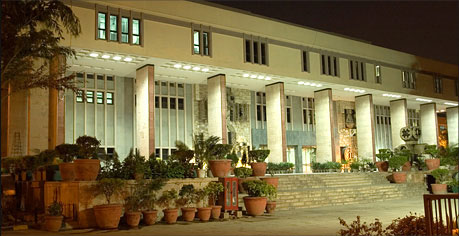Mere fact that liberty of bail was not abused during trial not enough for suspension of sentence u/S. 389 CrPC: Delhi High Court

The single-judge bench of the High Court was hearing a plea filed under Section 389 CrPC by a man seeking suspension of sentence while his appeal in a dowry death case was pending.
The Delhi High Court on Thursday observed that the mere fact that the liberty of bail was not abused during the trial may not be enough to justify the suspension of sentence and grant of bail.
Justice Anoop Kumar Mendiratta was hearing a plea filed by a man named Anil seeking suspension of the sentence under Section 389 CrPC during the pendency of his appeal in a dowry death case against him.
Court observed the distinction between a grant of bail under Section 439 CrPC during the trial and Section 389 CrPC (suspension of sentence) after conviction is clear, and the presumption of innocence provided during the trial does not continue after accused's conviction.
Court further observed that Section 389 CrPC requires compelling reasons for the suspension of sentence and the grant of bail and it must be determined whether there is a clear flaw in the order of conviction or whether there are other compelling reasons for bail release.
Anil was sentenced to two years rigorous imprisonment (RI) under Section 498A Indian Penal Code (IPC), ten years RI under Section 304B IPC, and one-year simple imprisonment under Section 4 of Dowry Prohibition Act, 1961. All the sentences were to run concurrently.
The counsel for Anil contended that the writing in the suicide note was never compared during the investigation and he was granted bail during the trial by an order issued by the High Court on April 8, 2015.
On contrary, the counsel for the State opposed the application and submitted that the application for regular suspension of the sentence was permitted to be withdrawn by order dated September 19, 2019, and added that Anil has not even served half of his sentence since his conviction in April 2019 and he was granted interim bail on July 15, 2020, and was directed to surrender on July 28, 2022.
“In a nutshell, the reasons must be relevant to justify the bail grounds. The fact that the accused were granted bail during the trial and there was no allegation of misuse of liberty is insignificant because the accused were found guilty on conviction. The mere fact that the liberty of bail was not abused during the trial may not be enough to justify the suspension of sentence and grant of bail”, the Court observed.
Court added that if the convict has served more than half of the sentence in the case of a fixed term sentence and the disposition of the appeal is likely to take some time, the matter should be considered in light of the observations made by the Apex Court in Sonadhar v. The State of Chhattisgarh (2021).
Court noted that in the instant matter, the Trial Court duly addressed the detailed contentions raised on behalf of the accused and concluded that there were demands for money and a car, as well as torturing of the victim with physical beatings.
Conclusively, the Court held that it should be emphasized that the Appellate Court, at the stage of suspension of sentence and release on bail till the disposal of the appeal, has to examine if there is any patent infirmity in the order of conviction that renders the conviction prima facie erroneous.
“The evidence is not to be re-evaluated or re-analyzed to postpone the execution of the sentence and detailed observations on the case are not required at this stage, lest it prejudices Anil’s case, but the matter had to be examined in the light of established principles of law”, the Court added.
Accordingly, the court dismissed the plea.
Case Title: Anil v. State
